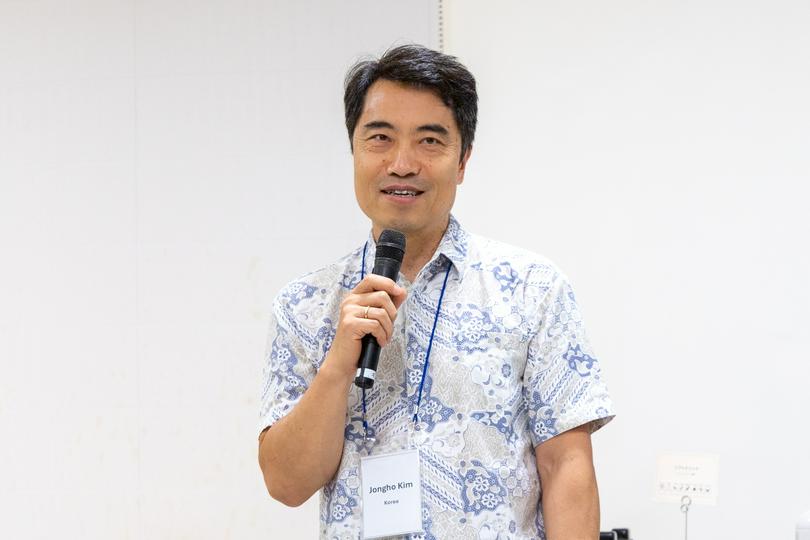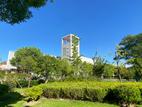Around 75 Christian leaders and peacebuilders from Northeast Asia and beyond gathered in Okinawa, Japan, from July 28 to August 2 for the 12th Christian Forum for Reconciliation in Northeast Asia (NARI), centered on the theme "Reconciliation Through Resilience: Learning from the Okinawa Context and Beyond."
Launched in 2012, the NARI Forum was initiated by Duke Divinity School's Center for Reconciliation, the Mennonite Central Committee, and colleges and institutions in Northeast Asia. The annual forum serves as a platform to pursue the pastoral, theological, and peacebuilding work of healing in a region shaped by historical wounds and divided memory.
Based in Seoul, South Korea, Jongho Kim has served as chairman of NARI since 2019 and a council member since 2014. He previously worked as the associate regional secretary of the International Fellowship of Evangelical Students (IFES) East Asia. In an exclusive interview with China Christian Daily, Kim shared why reconciliation is vital in Northeast Asia.
China Christian Daily: Could you please introduce the Christian Forum for Reconciliation in Northeast Asia (NARI) to us?
Jongho Kim: NARI formally began in 2014, but before that, there were efforts of different institutions and individuals dreaming of peace and reconciliation in Northeast Asia. We focus on the ministry of reconciliation, especially in a world more divided than ever, with the development of social media and political propaganda.
As divisions are growing bigger and wider, we believe reconciliation is a core calling from our Lord Jesus Christ. According to 2 Corinthians 5:17, we are called to be a new creation and ministers of reconciliation. While people and politics tend to divide, we want to overcome such division with our deep conviction that Christ died on the cross to break down the wall of hostility and to bring new humanity: there is no Jew or Gentile, no Korean, Japanese, or Chinese. We have diversity and are different, but we can be one in Christ, whose cross has overcome prejudice and hostility.
Christ Rice, one of the initiators, came to South Korea, Japan, and China in 2011 to meet different Christians to see what is going on among Christian leaders in terms of peace and reconciliation. He later invited people from Duke University in December 2012. At that consultation, key leaders from Northeast Asia and North America shared our common vision to start the forum in Northeast Asia. Since 2014, we have been gathering every year, taking turns to host in different countries, starting from Kapyong, Korea, Nagassaki, Japan, Hong Kong, Jeju Island, and Kyoto. During the COVID-19 pandemic, we had two online gatherings before resuming it in Paju, South Korea.
China Christian Daily: How about this year's forum in Okinawa?
Jongho Kim: This year is our first forum in Okinawa, where the painful history was past and is still ongoing. There are 31 U.S. military bases which accounts for twenty percent of the land. We believe this is a complex and challenging situation.
This year, we welcomed about 75 people from Northeast Asia and North America, along with two from Southeast Asia, as NARI is considering exploring a potential similar initiative in Southeast Asia.
This forum was powerful and meaningful. As an organizer, I am always amazed by how participants engage with one another. The work of the Holy Spirit is present within us to create amazing interaction and learning opportunities. The forum is not only about the official lectures or reconciliation, but also individual conversations on the bus or over meal time and private calls, which create learning opportunities and development of friendship.
This year is also the youngest forum, as about 48% of all participants are in their 20s and 30s. I find great hope in the young generation, who are influenced by the forum and make friends with each other.
China Christian Daily: What aspects should be reconciled in South Korea?
Jongho Kim: There is ongoing division and hostility between North Korea and South Korea. Reconciliation doesn't mean unification, but overcoming the division, allowing freedom to meet people across the border. As the division is the result of international politics, we need to engage in politics to influence decision and policy makers to at least allow free exchange between the north and the south, which will be better for the global world.
In South Korean society, where there are divisions between the rich and the poor, political parties, generations, and genders, NARI would like to address deep, underlying social issues so that people will understand that we need to listen to each other and have an open mind.
China Christian Daily: What about people from different countries?
Jongho Kim: First of all, reconciliation means meeting people not as categories, but as individuals without prejudice.
Second, feeling with history is very and painful because there are so many things that we have heard from each other, but with honesty and trust, a genuine conversation can be a beginning of our understanding of the historical context of other countries, we have a more sympathetic heart of understanding. You need to put yourself in the shoes of others. That is the beginning of important awareness that we are even before we are Chinese, Korean, or Japanese, we are broken human beings. We have a regrettable history that we often inherited incomplete historical narratives so that we need to overcome the kind of prejudice to genuine conversations.
China Christian Daily: How can Christians improve international relationships?
Jongho Kim: Christians should continue to have fellowship across ethnic, language, and geographic political divides. We need to spend time together, gather as God's children, and embrace each other as human beings. This kind of fellowship will shape us into a new humanity. It is our vision that only through this kind of human contact, we'll be able to embrace other people as our brothers and sisters instead of judging them without prejudice. We also care for each other. When things are going on in different countries, we show solidarity: we pray for and encourage them and share our resources. That is how we show support for each other.
China Christian Daily: Do you have any words for China?
Jongho Kim: I believe China has so much potential, amazing potential for blessing the whole world. Chinese people have a long history of civilization, an amazing legacy of intellectual and philosophical thought. The Chinese are diligent and creative.
In the past, China suffered deeply through many challenges, especially the power of Western imperialism. I understand there can be some reaction against this imperialistic power, but if China becomes a superpower, we hope China's influence can continue to be a blessing for the global family for the benefit of global humanity. For example, if the United States continues to use its power for its own benefit, it will risk facing consequences if power is used only for self-interest, rather than for the common good. Power is given from the Lord to bless others. If you use the power to bless the global family, China can also be a blessed nation. I believe powerful nations need to use their power for the benefit of others.












